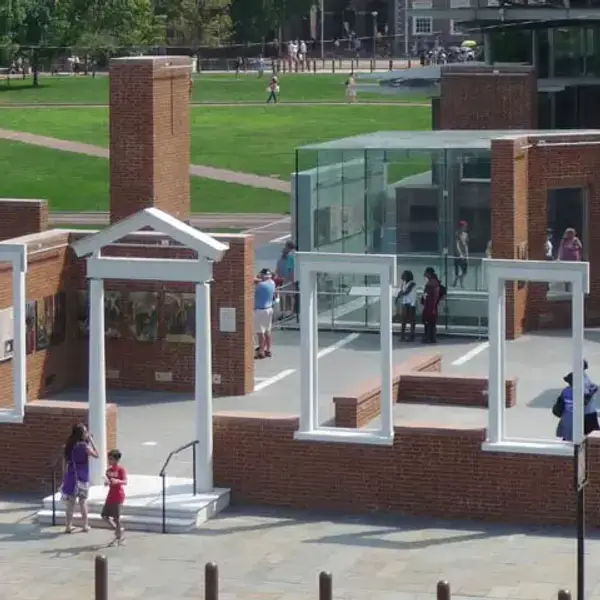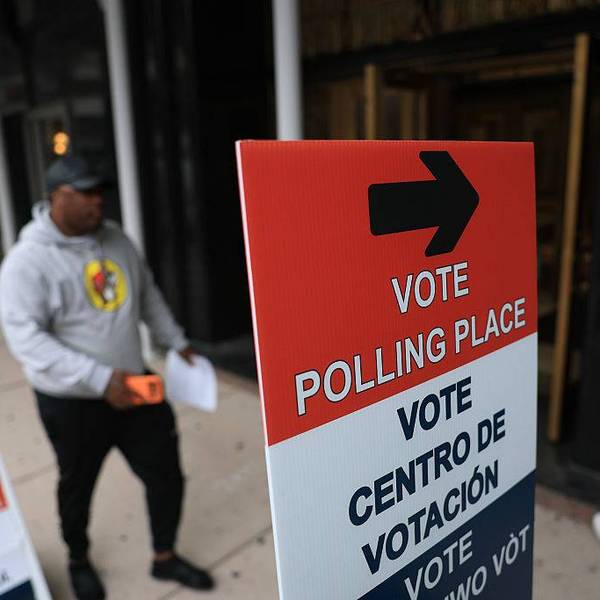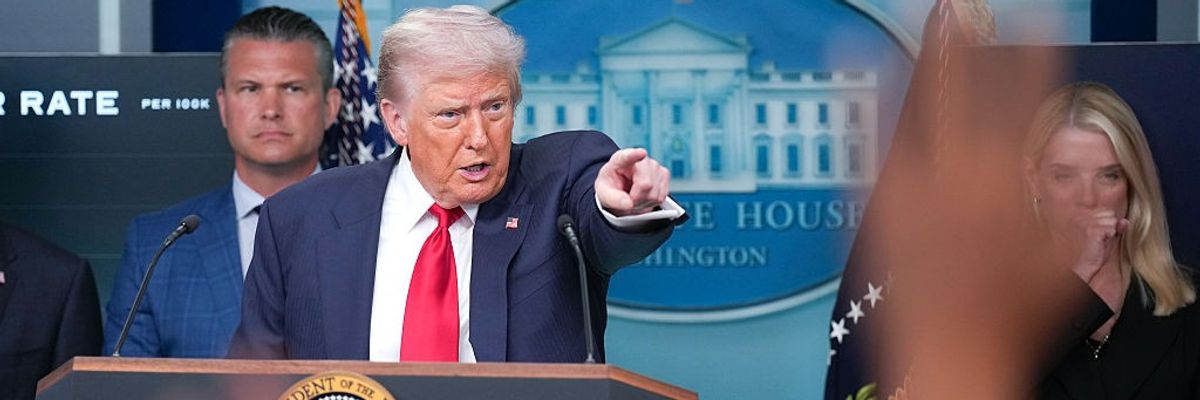Archbishop Desmond Tutu once warned, “If you are neutral in situations of injustice, you have chosen the side of the oppressor.” Neutrality—that quiet silence born of fear and resignation—is the oxygen every autocrat breathes. They survive by persuading us that resistance is pointless, that solidarity is too dangerous, and that isolation is inevitable.
But history has no mercy for regimes built on fear. They all fall.
We are watching the same authoritarian script play out today, from Vladimir Putin’s Russia to Benjamin Netanyahu’s siege of Gaza, from Viktor Orbán’s Hungary to the United States itself.
On Monday, President Trump invoked the Home Rule Act to seize control of Washington, D.C.’s Metropolitan Police Department, installing Drug Enforcement Administration Administrator Terry Cole as its leader. Citing “violent gangs, roving mobs of wild youth, drugged-out maniacs, and homeless people,” Trump’s move stripped local leaders of authority and placed city policing directly under federal control.
Tyranny collapses because people insist on the truth, because they reach for each other even when fear tells them not to.
The rhetoric is familiar: Criminalize the marginalized, amplify public fear, and consolidate power in fewer hands.
This is no isolated power grab. A landmark survey of more than 500 political scientists, known as Bright Line Watch, reveals a chilling reality: The U.S. is rapidly moving away from its democratic foundations toward outright authoritarianism. When Trump first took office in 2016, scholars rated American democracy at 67 on a 0-to-100 scale. Just weeks into his second term, that score plunged to 55.
Autocrats know the math: The more divided and distrustful people are, the easier they are to control. They ban books, criminalize truth telling, and turn communities into surveillance networks.
But here’s the paradox: By ruling through fear, they also poison the trust and loyalty they themselves need to survive. Paranoia takes root in their palaces. Corruption rots their alliances. Betrayal becomes inevitable.
History is full of moments when this internal decay meets public defiance: the fall of the Berlin Wall, the collapse of apartheid South Africa, the first uprisings of the Arab Spring. These changes didn’t come from tanks and bombs alone; they came from ordinary people, choosing connection over isolation and refusing to “live within the lie,” as Václav Havel wrote.
In Gaza’s underground schools, in Moscow kitchens, in Budapest cafés, and in D.C. neighborhoods, networks of care and resistance are already growing. They begin with whispers, small risks, quiet acts of defiance, each one a fracture in the machinery of control.
Freedom outlasts control. Dignity outlasts humiliation. Connection outlasts isolation.
Tyranny collapses because people insist on the truth, because they reach for each other even when fear tells them not to. That is the paradox that topples tyrants, and the promise that still belongs to us.




